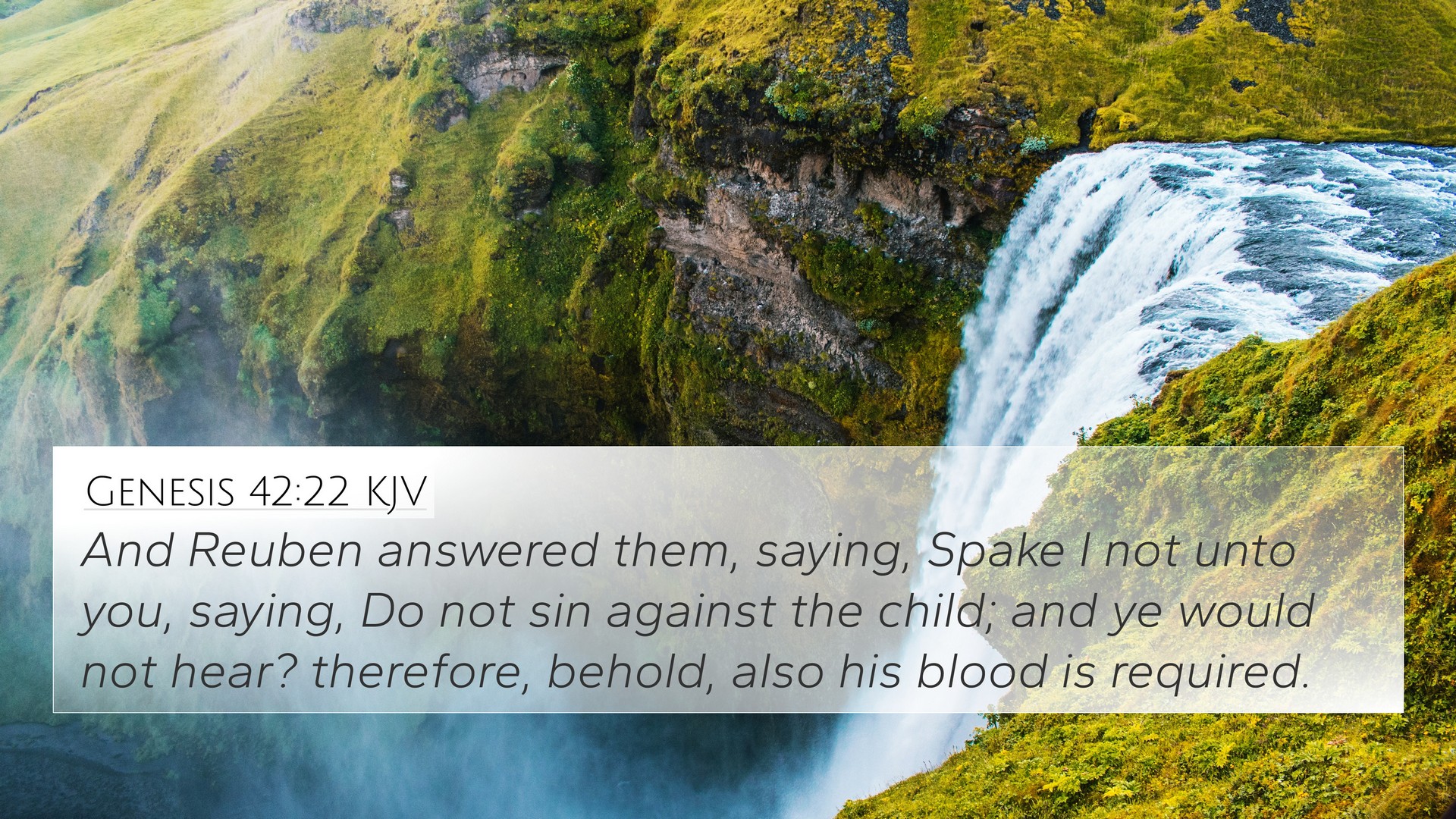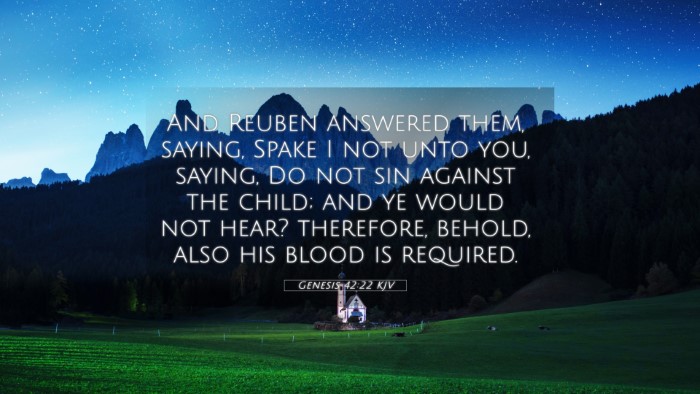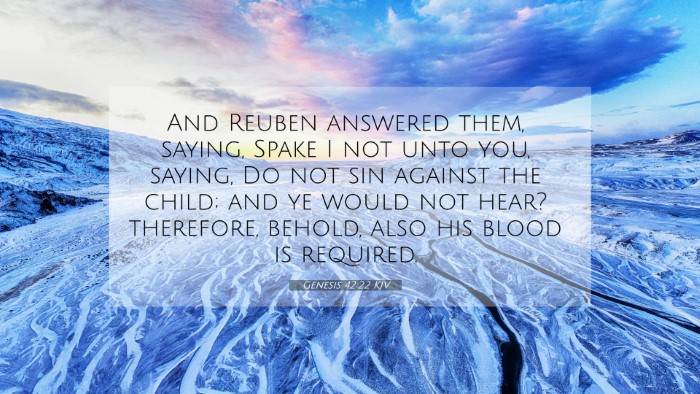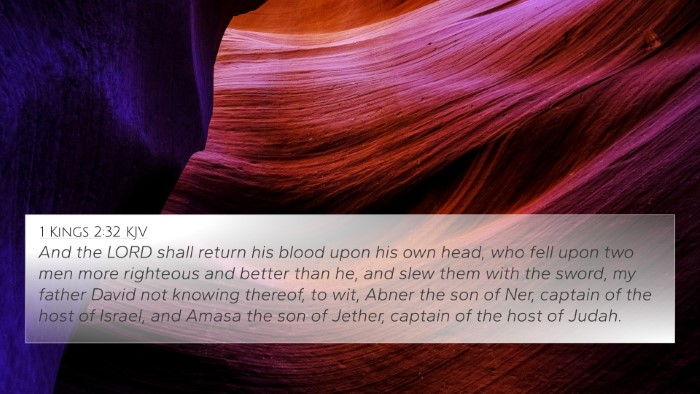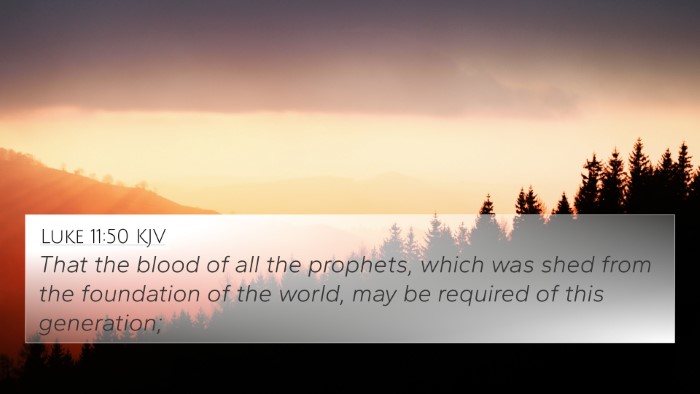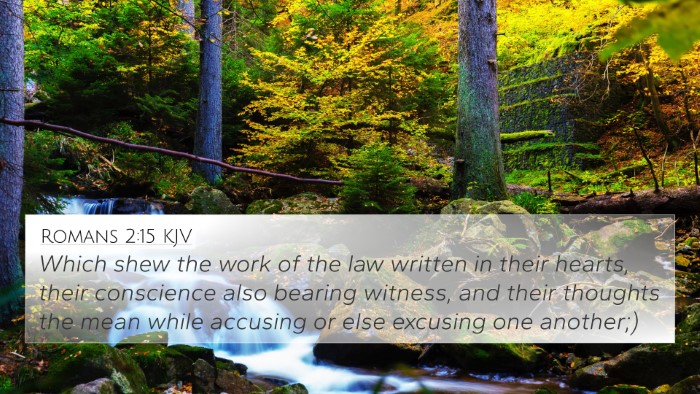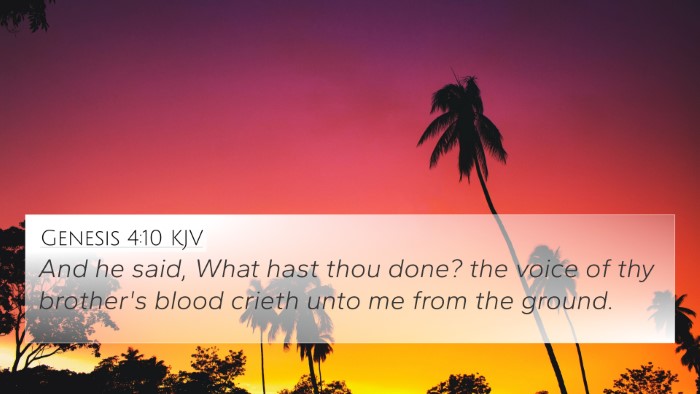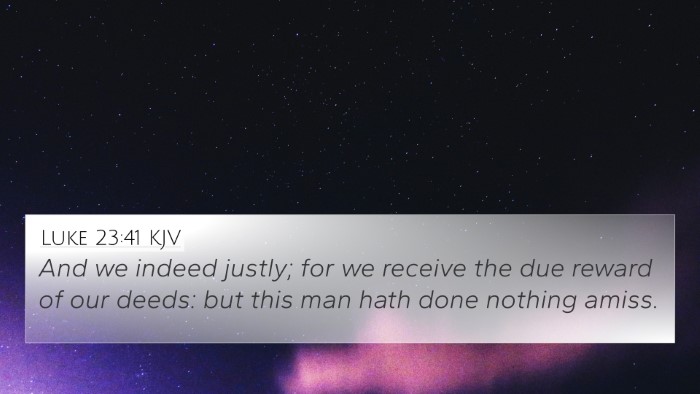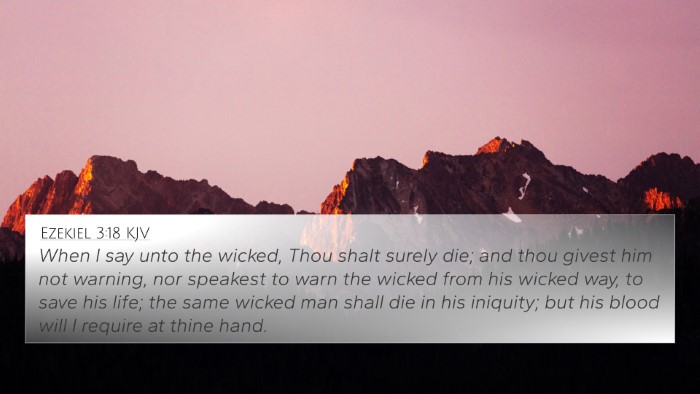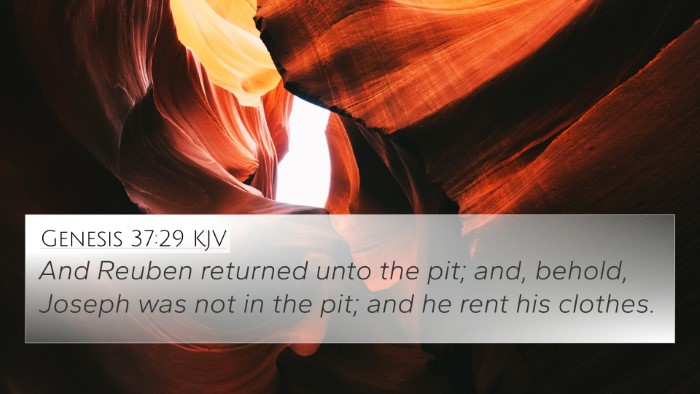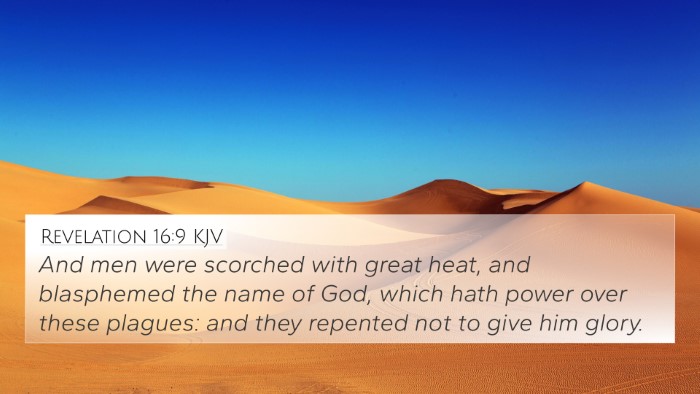Understanding Genesis 42:22
Genesis 42:22 reads: "Reuben answered them, saying, 'Did I not speak to you, saying, Do not sin against the child? And you would not listen. Therefore behold, his blood is now required of us.'" This verse occurs in a critical moment when Joseph's brothers are confronted with the guilt of their past actions regarding their brother.
This passage reveals various themes, including guilt, responsibility, and revelation. Here, Reuben speaks to his brothers about the consequences of their earlier decision to harm Joseph, highlighting the weight of their actions on their conscience.
Verse Meaning and Commentary Insights
Insights combined from esteemed public domain commentaries such as those by Matthew Henry, Albert Barnes, and Adam Clarke offer a rich understanding of this verse:
- Matthew Henry: He emphasizes the role of conscience in this narrative, highlighting how Reuben's words act as a reminder of their wrongdoing. Henry posits that guilt manifests when individuals become aware of their sin.
- Albert Barnes: Barnes focuses on the historical context and implications of this moment, explaining that Reuben is not only expressing remorse but is also attempting to shift culpability by recalling the warning he provided earlier, demonstrating the dynamics of fraternal relationships.
- Adam Clarke: Clarke notes that this incident serves as a pivotal moment in the brothers' character development. The verse illustrates the immediate repercussions of their past actions, suggesting a divine retribution theme that echoes throughout Scripture.
Thematic Bible Connections
This verse can be linked to several broader biblical themes, illustrating connections across the scriptural narrative:
- Guilt and Redemption: The brothers’ recognition of their past sins parallels the themes found in Psalm 51:3, where David expresses acknowledgment of sin.
- Fraternal Bonds: The relationship dynamics seen here can be compared to those in Matthew 5:23-24, where Jesus advises reconciliation between brothers.
- The Consequences of Sin: This theme can also be explored in Galatians 6:7, which states, "For whatever a man sows, that will he also reap."
- Divine Judgment: The relationship to divine judgment is echoed in Romans 14:12, affirming that each person will give an account of themselves to God.
- Family Conflict: This familial strife draws comparisons to instances in 1 Corinthians 6:7 about disputes among brethren.
- Prophetic Consequences: The sense of prophecy regarding the fate of Joseph can link to the promise made to Joseph in Genesis 37:5-10, where he dreams of his brothers bowing to him.
- Confession and Repentance: Reuben's admission of guilt foreshadows the confessing themes found in 1 John 1:9.
- Reconciliation and Forgiveness: The brothers’ eventual reconciliation with Joseph later reflects the teachings found in Luke 17:3-4 about forgiveness.
Connecting Genesis 42:22 to Other Biblical Texts
This verse serves as a crucial intersection point in the biblical narrative, allowing for a deeper exploration of interconnected themes and messages:
- Hebrews 10:30: This verse underlines the theme of vengeance, which relates to the brothers' fear of Joseph's power over them.
- Job 4:7: Job questions the innocence of any man, paralleling the theme of accountability seen in Genesis 42:22.
- 2 Samuel 12:13: David's acknowledgment of sin after confronting his own guilt may resonate similarly with the brothers' recognition of wrongdoing.
Utilizing tools for Bible cross-referencing can deepen the understanding of this verse further. The practice of cross-referencing Biblical texts can aid in exploring thematic Bible verse connections and parallels that enrich the interpretation of the scripture.
Conclusion
Genesis 42:22 serves as a poignant reminder of the weight of guilt and the necessity of acknowledgment in interpersonal relationships. The themes of sibling conflict, responsibility, and divine justice resonate throughout scripture, making this verse a significant point of study for understanding comparative Bible verse analysis and inter-Biblical dialogue.
